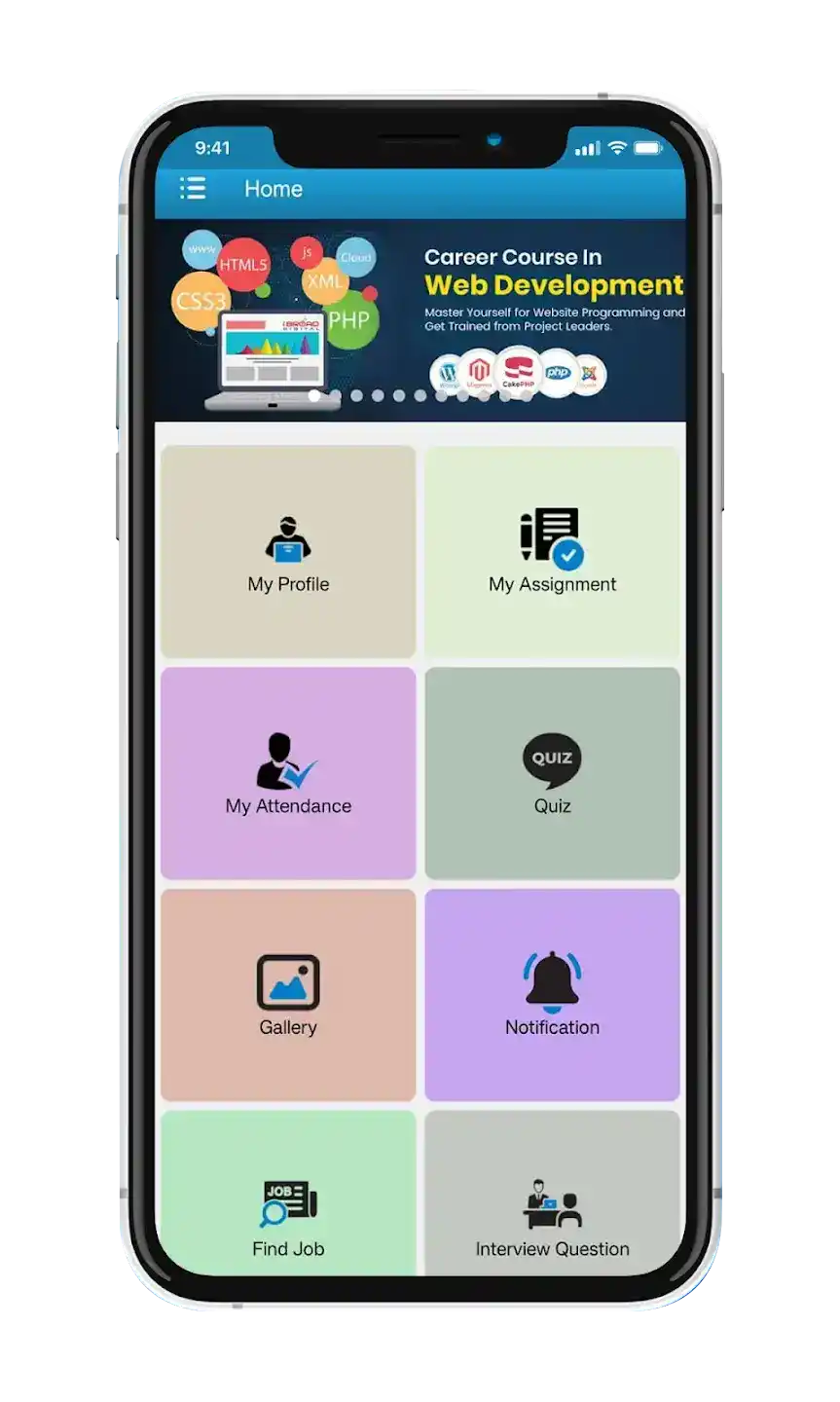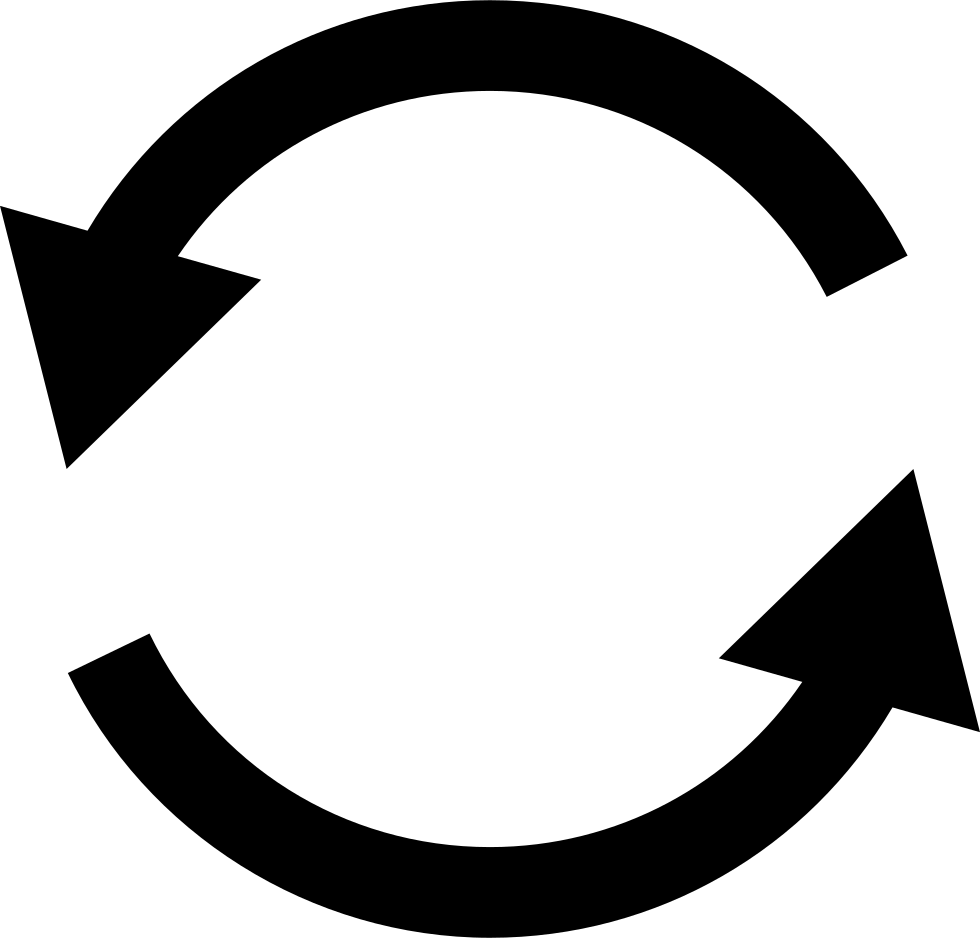Best Oracle Apps Training in Jaipur – DAAC Institute
Course Feature
Oracle APPS
- Duration 2 Months
- Class Timings 1.5 hour a day, 5 days a week
- Eligibility

Course Features
Oracle Apps Course in Jaipur
Oracle Apps training in Jaipur is designed to equip students with the skills needed to manage Oracle databases and implement applications in various business domains. The training generally covers key areas such as Oracle PL/SQL, Oracle DBA (Database Administration), and Oracle Apps modules like Finance, HR, and Supply Chain Management (SCM).
Students will typically learn how to administer Oracle databases, use SQL for data manipulation, and understand Oracle architecture. Real-world projects are often included to help learners apply theoretical knowledge in practical scenarios. The training may also involve preparing for Oracle certifications, which are highly valued in the IT industry and can significantly enhance career prospects. Many training providers in Jaipur also offer job placement assistance to help graduates secure positions in the field.
Oracle Apps Institute in Jaipur
In Jaipur, DAAC Institute is a well-known provider of Oracle Apps training. The institute offers courses that focus on Oracle database administration (DBA), Oracle PL/SQL, and various Oracle Apps modules, including finance, HR, and supply chain management (SCM). With a focus on practical learning, DAAC provides real-time project exposure to ensure that students gain hands-on experience, preparing them for the demands of the IT industry. The training also helps in obtaining Oracle certifications, which are highly valued in the job market
DAAC’s Oracle Apps courses are designed to enhance the technical skills of students and equip them for roles such as Oracle DBA, Oracle Developer, or Functional Consultant. The institute also offers job placement support to help students transition into professional roles after completing their training.
Oracle Apps Course Syllabus
The Oracle Apps Course syllabus is designed to provide a comprehensive understanding of Oracle Applications and database management. It starts with an introduction to Oracle Applications architecture and installation, followed by an in-depth study of Oracle database fundamentals, including SQL and PL/SQL. Here you can see our Oracle Apps syllabus:-
MODULE - 1
Introduction to Oracle Database
- Discuss the basic design, theoretical, and physical aspects of a relational database
- Categorize the different types of SQL statements
- Log on to the database using SQL Developer environment
- Save queries to files and use script files in SQL Developer
- List the features of Oracle Database 11g
- Describe the data set used by the course
Minor Exam and Project
MODULE - 2
Retrieve Data using the SQL SELECT Statement
- List the capabilities of SQL SELECT statements
- Generate a report of data from the output of a basic SELECT statement
- Select All Columns
- Select Specific Columns
- Use Column Heading Defaults
- Use Arithmetic Operators
- Understand Operator Precedence
- Learn the DESCRIBE command to display the table structure
Minor Exam and Project
MODULE - 3
Learn to Restrict and Sort Data
- Write queries that contain a WHERE clause to limit the output retrieved
- Describe the rules of precedence for comparison and logical operators
- Use character string literals in the WHERE clause
- Sort output in descending and ascending order
- Write queries that contain an ORDER BY clause to sort the output of a SELECT statement
- List the comparison operators and logical operators that are used in a WHERE clause
Minor Exam and Project
MODULE - 4
Usage of Single-Row Functions to Customize Output
- Describe the differences between single row and multiple row functions
- Manipulate strings with character function in the SELECT and WHERE clauses
- Manipulate numbers with the ROUND, TRUNC, and MOD functions
- Perform arithmetic with date data
- Manipulate dates with the DATE functions
Minor Exam and Project
MODULE - 5
Invoke Conversion Functions and Conditional Expressions
- Describe implicit and explicit data type conversion
- Use the TO_CHAR, TO_NUMBER, and TO_DATE conversion functions
- Apply the NVL, NULLIF, and COALESCE functions to data
- Use conditional IF THEN ELSE logic in a SELECT statement
- Nest multiple functions
Minor Exam and Project
MODULE - 6
Aggregate Data Using the Group Functions
- Use the aggregation functions in SELECT statements to produce meaningful reports
- Divide the data in groups by using the GROUP BY clause
- Exclude groups of date by using the HAVING clause
Minor Exam and Project
MODULE - 7
Display Data from Multiple Tables Using Joins
- Create a simple and complex view
- Retrieve data from views
- Create, maintain, and use sequences
- Create and maintain indexes
- Create private and public synonyms
Minor Exam and Project
MODULE - 8
Use Sub-queries to Solve Queries
- Describe the types of problem that sub-queries can solve
- Define sub-queries
- List the types of sub-queries
- Write single-row and multiple-row sub-queries
Minor Exam and Project
MODULE - 9
The SET Operators
- Describe the SET operators
- Use a SET operator to combine multiple queries into a single query
- Control the order of rows returned
Minor Exam and Project
MODULE - 10
Data Manipulation Statements
- Describe each DML statement
- Insert rows into a table
- Explain read consistency
- Change rows in a table by the UPDATE statement
- Delete rows from a table with the DELETE statement
- Save and discard changes with the COMMIT and ROLLBACK statements
Minor Exam and Project
MODULE - 11
Use of DDL Statements to Create and Manage Tables
- Categorize the main database objects
- Review the table structure
- List the data types available for columns
- Create a simple table
- Decipher how constraints can be created at table creation
- Describe how schema objects work
Minor Exam and Project
MODULE - 12
Other Schema Objects
- Create a simple and complex view
- Retrieve data from views
- Create, maintain, and use sequences
- Create and maintain indexes
- Create private and public synonyms
Minor Exam and Project
MODULE - 13
Control User Access
- Differentiate system privileges from object privileges
- Create Users
- Grant System Privileges
- Create and Grant Privileges to a Role
- Change Your Password
- Grant Object Privileges
- How to pass on privileges?
- Revoke Object Privileges
Minor Exam and Project
MODULE - 14
Management of Schema Object
- Add, Modify and Drop a Column
- Add, Drop and Defer a Constraint
- How to enable and disable a Constraint?
- Create and Remove Indexes
- Create a Function-Based Index
- Perform Flashback Operations
- Create an External Table by Using ORACLE_LOADER and by Using
- ORACLE_DATAPUMP
- Query External Tables
Minor Exam and Project
MODULE - 15
Manage Objects with Data Dictionary Views
- Query the dictionary views for constraint information
- Query the dictionary views for comment information
- Use the Dictionary Views
- Explain the data dictionary
- USER_OBJECTS and ALL_OBJECTS Views
- Query the dictionary views for view, sequence, index and synonym information Add a comment to a table
- Table and Column Information
Minor Exam and Project
MODULE - 16
Manipulate Large Data Sets
- Use Sub queries to Manipulate Data
- Retrieve Data Using a Sub query as Source
- Insert Using a Sub query as a Target
- Usage of the WITH CHECK OPTION Keyword on DML Statements
- List the types of Multi table INSERT Statements
- Use Multi table INSERT Statements
- Merge rows in a table
- Track Changes in Data over a period of time
Minor Exam and Project
MODULE - 17
Data Management in Different Time Zones
-
>
- CURRENT_DATE, CURRENT_TIMESTAMP, and LOCALTIMESTAMP
- Compare Date and Time in a Session’s Time Zone
- Invoke TO_TIMESTAMP,TO_YMINTERVAL and TO_DSINTERVAL
- DBTIMEZONE and SESSIONTIMEZONE
- Difference between DATE and TIMESTAMP
- INTERVAL Data Types
- Time Zones
- Use EXTRACT, TZ_OFFSET and FROM_TZ
Minor Exam and Project
MODULE - 18
Retrieve Data Using Sub-queries
- Multiple-Column Sub queries
- Pairwise and No pairwise Comparison
- Scalar Sub query Expressions
- Solve problems with Correlated Sub queries
- Update and Delete Rows Using Correlated Sub queries
- The EXISTS and NOT EXISTS operators
- Invoke the WITH clause
- The Recursive WITH clause
Minor Exam and Project
MODULE - 19
Regular Expression Support
- Use the Regular Expressions Functions and Conditions in SQL
- Use Meta Characters with Regular Expressions
- Perform a Basic Search using the REGEXP_LIKE function
- Find patterns using the REGEXP_INSTR function
- Extract Substrings using the REGEXP_SUBSTR function
- Replace Patterns Using the REGEXP_REPLACE function
- Usage of Sub-Expressions with Regular Expression Support
- Implement the REGEXP_COUNT function
Minor Exam and Project
Oracle PL/SQL Training Outline
MODULE - 1
Introduction
- Course Objectives
- Course Agenda
- Human Resources (HR) Schema
- Introduction to SQL Developer
Minor Exam and Project
MODULE - 2
Introduction to PL/SQL
- PL/SQL Overview
- Benefits of PL/SQL Subprograms
- Overview of the Types of PL/SQL blocks
- Create a Simple Anonymous Block
- Generate Output from a PL/SQL Block
Minor Exam and Project
MODULE - 3
PL/SQL Identifiers
- List the different Types of Identifiers in a PL/SQL subprogram
- Usage of the Declarative Section to define Identifiers
- Use variables to store data
- Identify Scalar Data Types
- The %TYPE Attribute
- What are Bind Variables?
- Sequences in PL/SQL Expressions
Minor Exam and Project
MODULE - 4
Write Executable Statements
- Describe Basic PL/SQL Block Syntax Guidelines
- Comment Code
- Deployment of SQL Functions in PL/SQL
- How to convert Data Types?
- Nested Blocks
- Identify the Operators in PL/SQL
Minor Exam and Project
MODULE - 5
Interaction with the Oracle Server
- Invoke SELECT Statements in PL/SQL to Retrieve data
- Data Manipulation in the Server Using PL/SQL
- Usage of SQL Cursor Attributes to Obtain Feedback on DML
- SQL Cursor concept
- Save and Discard Transactions
Minor Exam and Project
MODULE - 6
Control Structures
- Conditional processing Using IF Statements
- Use simple Loop Statement
- Use While Loop Statement
- Use For Loop Statement
- Describe the Continue Statement
- Conditional processing Using CASE Statements
Minor Exam and Project
MODULE - 7
Composite Data Types
- Use PL/SQL Records
- The %ROWTYPE Attribute
- Insert and Update with PL/SQL Records
- Associative Arrays (INDEX BY Tables)
- Examine INDEX BY Table Methods
- Use INDEX BY Table of Records
Minor Exam and Project
MODULE - 8
Explicit Cursors
- What are Explicit Cursors?
- Declare the Cursor
- Open the Cursor
- Fetch data from the Cursor
- Close the Cursor
- Cursor FOR loop
- Explicit Cursor Attributes
- FOR UPDATE Clause and WHERE CURRENT Clause
Minor Exam and Project
MODULE - 9
Exception Handling
- Understand Exceptions
- Handle Exceptions with PL/SQL
- Trap Predefined Oracle Server Errors
- Trap Non-Predefined Oracle Server Errors
- Trap User-Defined Exceptions
- Propagate Exceptions
- RAISE_APPLICATION_ERROR Procedure
Minor Exam and Project
MODULE - 10
Stored Procedures and Functions
- Understand Stored Procedures and Functions
- Differentiate between anonymous blocks and subprograms
- Create a Simple Procedure with IN parameter
- Create a Simple Procedure
- Create a Simple Function
- Execute a Simple Procedure
- Execute a Simple Function
Minor Exam and Project
MODULE - 11
Create Stored Procedures
- Create a Modularized and Layered Subprogram Design
- Modularize Development With PL/SQL Blocks
- Describe the PL/SQL Execution Environment
- Identity the benefits of Using PL/SQL Subprograms
- List the differences Between Anonymous Blocks and Subprograms
- Implement Procedures Parameters and Parameters Modes
- View Procedures Information Using the Data Dictionary Views and SQL Developer
- Create, Call, and Remove Stored Procedures Using the CREATE Command and SQL Developer
Minor Exam and Project
MODULE - 12
Create Stored Functions
- Create, Call, and Remove a Stored Function Using the CREATE Command and SQL Developer
- Identity the advantages of Using Stored Functions in SQL Statements
- List the steps to create a stored function
- Implement User-Defined Functions in SQL Statements
- Identity the restrictions when calling Functions from SQL statements
- Control Side Effects when calling Functions from SQL Expressions
- View Functions Information
Minor Exam and Project
MODULE - 13
Create Packages
- Identity the advantages of Packages
- List the components of a Package
- Develop a Package
- How to enable visibility of a Package’s components?
- Invoke Package Constructs
- Describe Packages
- View PL/SQL Source Code Using the Data Dictionary
- Create the Package Specification and Body Using the SQL CREATE Statement and SQL Developer
Minor Exam and Project
MODULE - 14
Packages
- Overloading Subprograms in PL/SQL
- Use the STANDARD Package
- Persistent State of Packages
- Use Forward Declarations to Solve Illegal Procedure Reference
- Implement Package Functions in SQL and Restrictions
- Control Side Effects of PL/SQL Subprograms
- Invoke PL/SQL Tables of Records in Packages
- Persistent State of a Package Cursor
Minor Exam and Project
MODULE - 15
Implement Oracle-Supplied Packages in Application Development
- Examples of Some of the Oracle-Supplied Packages
- How Does the DBMS_OUTPUT Package Work?
- Use the UTL_FILE Package to Interact With Operating System Files
- Invoke the UTL_MAIL Package
- Write UTL_MAIL Subprograms
- What are Oracle-Supplied Packages?
Minor Exam and Project
MODULE - 16
Dynamic SQL
- The Execution Flow of SQL
- What is Dynamic SQL?
- Declare Cursor Variables
- Dynamically executing a PL/SQL Block
- Invoke DBMS_SQL Package
- Dynamic SQL Functional Completeness
- Configure Native Dynamic SQL to Compile PL/SQL Code
- Implement DBMS_SQL with a Parameterized DML Statement
Minor Exam and Project
MODULE - 17
Design Considerations for PL/SQL Code
- Standardize Constants and Exceptions
- Understand Local Subprograms
- Write Autonomous Transactions
- Implement the NOCOPY Compiler Hint
- Invoke the PARALLEL_ENABLE Hint
- The DETERMINISTIC Clause with Functions
- Usage of Bulk Binding to Improve Performance
- The Cross-Session PL/SQL Function Result Cache
Minor Exam and Project
MODULE - 18
Triggers
- Describe Triggers
- Identify the Trigger Event Types and Body
- Create Instead of and Disabled Triggers
- Business Application Scenarios for Implementing Triggers
- Create DML Triggers Using the CREATE TRIGGER Statement and SQL Developer
- Identify the Trigger Event Types, Body, and Firing (Timing)
- Statement Level Triggers Versus Row Level Triggers
- How to Manage, Test, and Remove Triggers?
Minor Exam and Project
MODULE - 19
Create Compound, DDL, and Event Database Triggers
- Identify the Timing-Point Sections of a Table Compound Trigger
- Compound Trigger Structure for Tables and Views
- Implement a Compound Trigger to Resolve the Mutating Table Error
- Compare Database Triggers to Stored Procedures
- Create Database-Event and System-Event Triggers
- System Privileges Required to Manage Triggers
- What are Compound Triggers?
- Create Triggers on DDL Statements
Minor Exam and Project
MODULE - 20
The PL/SQL Compiler
- Describe the Initialization Parameters for PL/SQL Compilation
- List the New PL/SQL Compile Time Warnings
- Overview of PL/SQL Compile Time Warnings for Subprograms
- List the PL/SQL Compile Time Warning Messages Categories
- Setting the Warning Messages Levels: Using SQL Developer, PLSQL_WARNINGS
- Initialization Parameter, and the DBMS_WARNING Package Subprograms
- View Compiler Warnings: Using SQL Developer, SQL*Plus, or the Data Dictionary Views
- What is the PL/SQL Compiler?
- List the benefits of Compiler Warnings
Minor Exam and Project
MODULE - 21
Manage PL/SQL Code
- What Is Conditional Compilation?
- Implement Selection Directives
- The DBMS_DB_VERSION Package
- Invoke Predefined and User-Defined Inquiry Directives
- The PLSQL_CCFLAGS Parameter and the Inquiry Directive
- Conditional Compilation Error Directives to Raise User-Defined Errors
- Write DBMS_PREPROCESSOR Procedures to Print or Retrieve Source Text
- Obfuscation and Wrapping PL/SQL Code
Minor Exam and Project
MODULE - 22
Manage Dependencies
- Query Direct Object Dependencies using the USER_DEPENDENCIES View
- Display the Direct and Indirect Dependencies
- Fine-Grained Dependency Management in Oracle Database 11g
- Understand Remote Dependencies
- Recompile a PL/SQL Program Unit
- Overview of Schema Object Dependencies
- Query an Object’s Status
- Invalidation of Dependent Objects
Minor Exam and Project

Why choose DAAC for Oracle Apps Course in Jaipur
As a leading Oracle Apps Institute In Jaipur, we offer Oracle Apps courses and specializations. With our programs, many students have begun their careers. Here are a few reasons why DAAC is a great place to take a Oracle Apps course.
- Hands-on experience with live projects.
- We help you obtain Oracle Apps training, certifications, & jobs in Jaipur.
- We offer free demo sessions.
- Experienced faculty.
- Both practical and theoretical classes are taught.

We Will Contact You, At a Time Which Suits You Best
Benefits of Studying Oracle Apps Course
- Diverse Career Opportunities: Certification and expertise in Oracle Apps open doors to various roles such as Functional Consultant, Technical Consultant, Oracle DBA, and Application Developer.
- Global Recognition: Oracle certifications are globally accepted, enabling you to pursue career opportunities internationally.
- Competitive Salaries: Certified Oracle professionals typically command higher salaries due to their specialized skill set.
- Enhanced Productivity: Gaining expertise in Oracle Apps allows you to work more efficiently in managing databases and enterprise applications.
- Adaptability to New Technologies: Oracle Apps training equips you to work with advanced Oracle tools and adapt to evolving enterprise technologies.

Projects
Our Projects
.jpg)
Book an Artiste
.jpg)
The Law Desk
.jpg)
kanhha cables
.jpg)
kanhha cables
.jpg)
Rotary
.jpg)
Property Bull
.jpg)
Tirupati Plastomatics
.jpg)
Astro Trishla
.jpg)
Neewara
.jpg)
Zepjob
.jpg)
kbct india
.jpg)
Miss Bali Tropix

Skills Certificate
From the
DAAC

Discover Our App
Access your courses anywhere, anytime & prepare with practice tests










